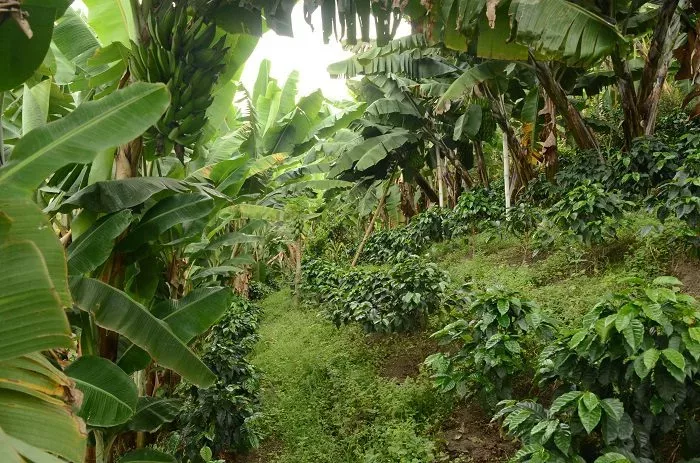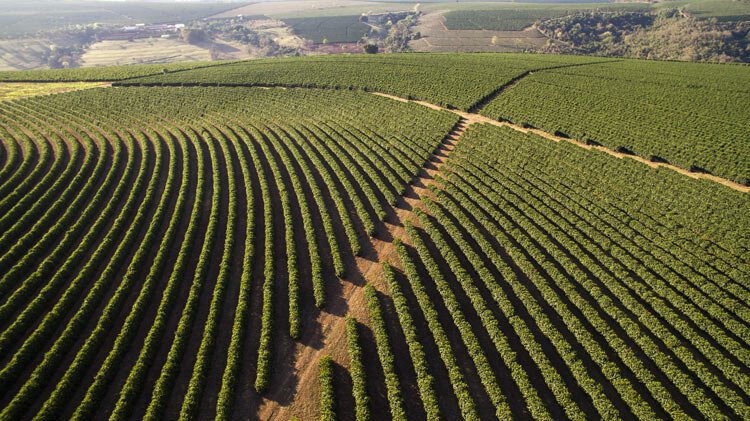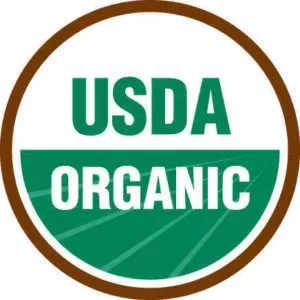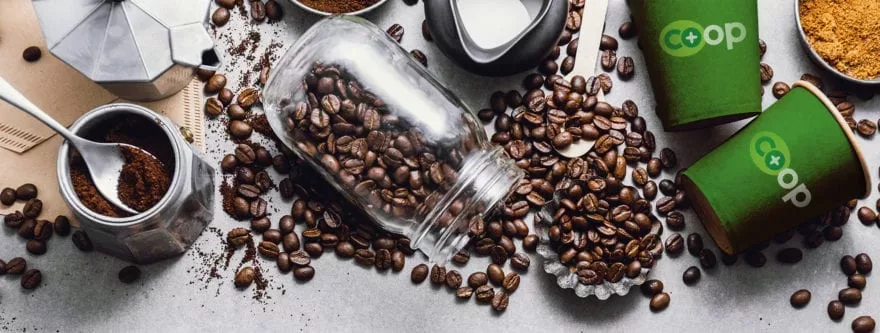A lot of words may jump out at you when you walk down the coffee aisle at the Co-op—shade-grown, fair trade, organic, local, and more. But what do they mean in this context? What makes shade-grown coffee desirable? What exactly does “fair trade” require of companies? These are exactly the kinds of questions we want to answer, so you can shop with more confidence.

Shade-Grown
To understand why shade-grown coffee is so important, we have to remember that coffee is one of the most popular beverages in the world. Its history spans centuries, continents, and cultures. As Businesswire explains, the global coffee industry was valued at USD 102.15 billion in 2019 and is set to grow a record 6.2% in the next six years. Ensuring that there are 75 million cups of coffee to be consumed around the world each day is a big business and it has dramatic effects on the developing and emerging countries where coffee grows most abundantly.
There are two kinds of coffee beans, robusta and arabica, and two main coffee cultivation systems, sun-grown and shade-grown. Arabica loves the shade and robusta needs the sun. That means that if you are drinking coffee made from arabica beans, you are most likely drinking shade-grown coffee—whether it is advertised that way or not.
Coffee plants naturally grow under the shade of a full forest canopy. Until the 1970s, cultivators largely let coffee grow as part of this larger ecosystem.

Sun-Grown
Out of the desire to decrease growing times and increase yields and profits, coffee producers began clearcutting for coffee plantations and growing coffee plants in neat rows in direct sun. In this quest, the sun-grown coffee industry deforested 2.5 million acres in Central America. Many organisms experience habitat loss due to widespread deforestation (especially migratory birds), but deforestation also contaminates waterways and expedites natural soil erosion.
Absent the natural protection of the canopy and the diversity of life teeming underneath, farmers must introduce chemical pesticides and fertilizers to ward off plant disease and create growing conditions. Relying on these chemicals damages the soil, contaminates the groundwater, and causes illness in exposed humans and animals. The robusta beans that are cultivated in this way are also lower quality than their shade-grown, arabica counterparts. Exposure to full sun stresses these already vulnerable monocrops, and the faster growing times that makes robusta beans easier to produce is a double-edged sword. Because the beans grow faster in the sun, they also don’t develop the density and complexity that characterize arabica beans, which grow more slowly at higher elevations and in cooler temperatures.
Increasingly farmers are returning to traditional, shade-grown farming methods, because beans cultivated in that manner can be sold for higher prices to more discerning buyers. Unfortunately, that doesn’t mean that coffee plantations are a thing of the past. Of the coffee sold in stores in the US, 75% is still made from sun-grown beans, and the US leads the world in global coffee consumption.
One of the most important choices you can make as a conscious consumer in the coffee aisle is to select brands that only roast shade-grown beans. By doing so, you are protecting the people and the planet that make your coffee possible and you’re getting a tastier cup of coffee along the way.
Fair Trade
In addition to looking for signs that your coffee is shade-grown, you should also scope out fair trade certified products when you shop. Corporate greenwashing trends have made it really hard for consumers to trust “fair trade” labels. At the Co-op, we take out the guesswork. You can expect to see this logo on coffee packaging:

The fair trade certified seal means that the coffee producer was held to the most rigorous social, environmental, and economic standards. The coffee you are about to drink was cultivated under safe working conditions that protected the environment and the beans were sold for a fair price that allows their farmer to sustain a livelihood.
Organic
Not all fair trade certified products are organic and neither are all shade-grown beans. To ensure that the coffee you drink is the best possible for your body, the environment, and the workers who cultivated the beans, you should choose a coffee that is organic as well as shade-grown and fair trade certified.
At the Co-op, you can expect to see the USDA Organic seal all around our store, including on our coffee. The United States Department of Agriculture sets the national standard for organics and conducts thorough inspections of all the products it certifies. USDA certified organic coffee beans cannot be grown with the aid of pesticides, synthetic fertilizers, or genetic engineering or in soil that has been contaminated by chemicals in the last three years. USDA Organic is the gold standard certification, in part, because the USDA has strict regulations that govern the whole life cycle of the bean. There are rules for how beans must be transported, roasted, and packaged to prevent contamination from certain cleaners and conventional products.

Local
Want to go the extra mile for sustainability? Choose coffee from a local roaster. Buying locally means that you can support your neighbors, keep more of your shopping dollars in the local economy, and reduce the carbon footprint of the products you buy. What’s not to love?
Ready to shop? Browse our selection of shade-grown, fair trade, organic, and local coffees online here.
